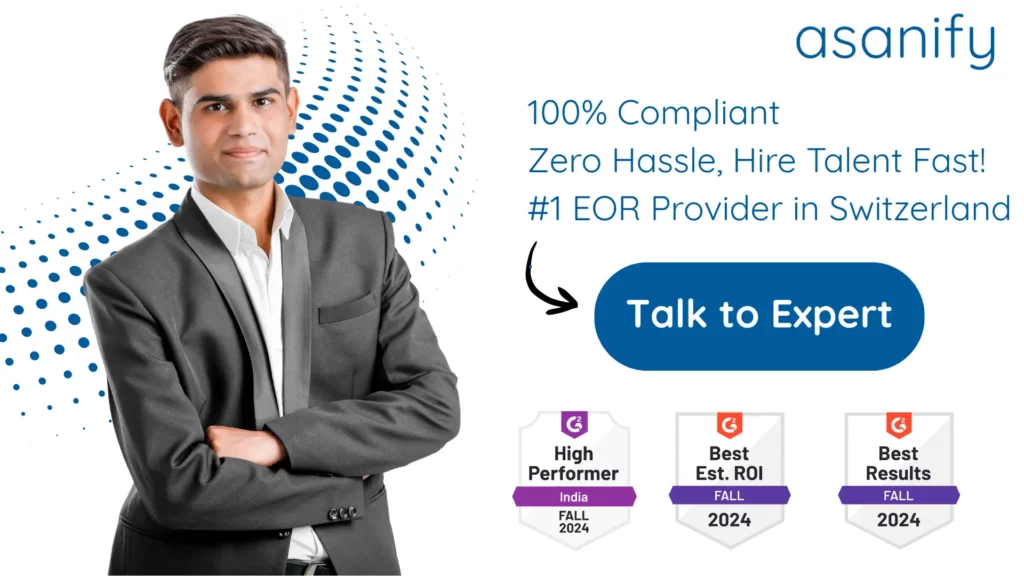Switzerland, long known for its political neutrality, economic stability, and legal clarity, is emerging as a premium nearshoring destination for global companies in 2025. While often considered expensive, Switzerland’s unmatched reputation in compliance-heavy sectors like legal, finance, and pharmaceuticals makes it a compelling choice for outsourcing sensitive, high-value tasks. Its multilingual talent pool, world-class infrastructure, and time-zone alignment with Europe offer a strategic advantage to companies seeking risk mitigation and operational excellence.
This comprehensive guide walks you through outsource work to Switzerland ecosystem—covering why global companies are outsourcing here, what services work best, how to select the right vendors, and what legal structures you must follow to ensure compliance and scalability.
Table of Contents
- What is Outsourcing and Why Do Companies Do It?
- Overview of the Outsourcing Industry in Switzerland
- Why is Switzerland a Hotspot for Outsourcing in 2025?
- What Types of Work Can You Outsource to Switzerland?
- Three Commonly Outsourced Services in Switzerland
- Step-by-Step Guide to Outsourcing to Switzerland
- Best Practices to Make Outsourcing to Switzerland a Success
- Pros and Cons of Outsourcing to Switzerland
- Legal and Compliance Framework in Switzerland
- Cost Breakdown – How Much Can You Save?
- Outsourcing Projects from the USA to Switzerland
- Conclusion
- FAQs
What is Outsourcing and Why Do Companies Do It?
Outsourcing refers to the strategic practice of hiring external service providers to handle business functions that could otherwise be managed internally. Companies outsource to increase efficiency, reduce costs, and access specialized talent that may not be available in-house. In the context of international business, outsourcing often enables 24/7 operations, helps businesses scale quickly without building local entities, and ensures that teams operate in compliance with international standards.
Switzerland offers all these advantages with an added layer of trust, especially for businesses operating in highly regulated industries. While offshore destinations like India and the Philippines are known for affordability, Switzerland is preferred when quality, security, and precision are critical. For example, legal process outsourcing, multilingual customer support, compliance audits, and IP-sensitive development projects are ideal fits for the Swiss outsourcing model. This is why companies often combine Switzerland with other nearshore or offshore locations to build a hybrid, cost-efficient, and resilient outsourcing strategy.
Overview of the Outsourcing Industry in Switzerland
The outsourcing industry in Switzerland is defined by its focus on premium service delivery, regulatory excellence, and specialized verticals. Rather than offering mass-scale business process outsourcing, Swiss providers target high-margin, high-skill domains such as finance, legal advisory, pharma R&D support, multilingual communication, and niche IT development. Zurich, Geneva, Lausanne, and Basel are the core outsourcing hubs, hosting a mix of corporate service providers, consultancies, and specialized outsourcing firms.
Switzerland is not typically associated with low-cost outsourcing. Instead, it positions itself as a “high-trust nearshoring hub” where companies pay more but receive unmatched quality, punctuality, and compliance assurance. The country’s trilingual proficiency—German, French, and Italian—alongside widespread English fluency makes it particularly attractive to global firms needing multilingual services for European markets.
As of 2025, Switzerland also attracts global clients for knowledge process outsourcing (KPO) and professional services outsourcing, often supported by technology integration and automation. Most outsourcing partners in Switzerland are GDPR-compliant and certified with ISO or SOC2, helping clients confidently navigate complex legal landscapes.
Why is Switzerland a Hotspot for Outsourcing in 2025?
Switzerland has carved out a unique position in Europe as a secure, high-compliance outsourcing destination that caters to specialized and mission-critical services. One of the key drivers is its robust legal and data protection frameworks, which make it ideal for handling sensitive information. For sectors like fintech, healthcare, life sciences, and law, the risk of non-compliance is simply too high to rely on cheaper alternatives. In these scenarios, Switzerland offers the confidence and credibility needed for enterprise-grade outsourcing.
The country’s well-educated and multilingual talent pool also adds to its value proposition. Swiss professionals are known for precision, discretion, and strong work ethics. The education system places a heavy emphasis on business, STEM, and multilingual communication, producing a steady flow of highly qualified graduates. Moreover, Switzerland’s time-zone alignment with the EU enables smooth real-time collaboration with clients based in Germany, France, Italy, and the UK.
While Swiss outsourcing rates are higher than Eastern Europe or Asia, clients often find a better ROI through lower risk exposure, better communication, fewer delays, and higher deliverable quality. For companies looking to build long-term, stable vendor relationships, Switzerland remains one of the best choices in 2025.

What Types of Work Can You Outsource to Switzerland?
Switzerland’s outsourcing profile is particularly strong in high-trust, high-compliance domains. Businesses that require strict confidentiality, multilingual precision, and specialized expertise are especially well-suited to outsource to Swiss partners.
Commonly outsourced functions include:
- Legal support (contract abstraction, EU compliance, intellectual property management)
- Finance and accounting (audit support, tax consulting, payroll processing)
- Multilingual customer service (especially in German, French, Italian, and English)
- Regulatory affairs for pharmaceuticals and life sciences
- IT consulting and custom software development for fintech and medtech
- Market research and business intelligence
- CX (Customer Experience) design and process optimization
- Content localization for Swiss and EU markets
- HR and employment administration (especially via Employer of Record service providers)
These services align well with the country’s legal clarity, data security infrastructure, and specialized workforce. Unlike countries known for volume-based outsourcing, Switzerland delivers niche and high-value services with long-term strategic benefits.
Suggested Read: EOR Switzerland: Ultimate Guide on Employer of Record 2025
Three Commonly Outsourced Services in Switzerland
1. Legal and Compliance Services
Swiss firms are leaders in legal process outsourcing (LPO), especially in areas involving GDPR audits, EU cross-border laws, and intellectual property protection. They offer exceptional expertise in multilingual contract management and regulatory documentation.
2. Finance and Tax Advisory
Switzerland’s financial heritage makes it a preferred choice for outsourcing payroll, tax compliance, and audit preparation. Providers often have dual expertise in Swiss tax frameworks, allowing global firms to maintain compliance seamlessly.
3. Multilingual Customer Support
Thanks to its multilingual population and high service standards, Switzerland is ideal for B2B and B2C support teams targeting DACH and Francophone markets. Swiss agents are trained in tone, cultural context, and CX delivery.
Step-by-Step Guide to Outsourcing to Switzerland
Outsourcing to Switzerland follows a structured process due to its focus on compliance and quality. Here’s a proven 8-step roadmap:
- Define Your Requirements: Outline deliverables, security standards, and language needs.
- Shortlist Vendors: Look for firms in Zurich, Geneva, or Lausanne with domain-specific expertise.
- Request Proposals: Send RFPs that detail SLAs, timelines, and compliance expectations.
- Conduct Due Diligence: Evaluate vendor certifications, client history, and data protection protocols.
- Negotiate Contracts: Ensure agreements include NDAs, GDPR clauses, IP transfer rights, and service-level metrics.
- Set Communication Cadence: Establish tools (e.g., Slack, Zoom) and weekly/monthly check-ins.
- Onboard and Train Teams: Provide knowledge bases, compliance guidelines, and SOPs.
- Review and Scale: Use KPIs and audit reports to track success and expand engagement.

Best Practices to Make Outsourcing to Switzerland a Success
To ensure success, companies should:
- Invest in Clear Documentation: Use precise contracts and SOPs to reduce ambiguity.
- Align on Compliance: Choose vendors well-versed in GDPR, Swiss data laws, and international standards.
- Build Long-Term Relationships: Swiss outsourcing is not designed for short-term or transactional work.
- Ensure Cultural Fit: Focus on vendors that understand your tone, values, and customer expectations.
- Use Hybrid Models: Combine Swiss talent with support from lower-cost regions for balance.
- Audit Regularly: Conduct quarterly performance reviews and annual compliance audits to stay aligned.
Pros and Cons of Outsourcing to Switzerland
| Pros | Cons |
| Unmatched legal and compliance infrastructure | Higher labor and vendor costs |
| Multilingual and highly skilled professionals | Not ideal for transactional or bulk tasks |
| Ideal for confidential or regulated work | Limited talent pool for short-term freelance roles |
| Central European time zone for smooth collaboration | Longer vendor onboarding timelines |
Legal and Compliance Framework in Switzerland
Switzerland enforces one of the most sophisticated and business-friendly legal systems in Europe for outsourcing. The country provides strong protection for intellectual property, contract enforcement, and data privacy. Swiss outsourcing agreements typically include Service Level Agreements (SLAs), Non-Disclosure Agreements (NDAs), and GDPR-aligned clauses. Employers also benefit from clearly defined worker classification rules and dispute resolution mechanisms. Additionally, Switzerland’s alignment with both EU and domestic compliance standards ensures smooth cross-border partnerships.
Key legal features include:
- Strong IP protection through clear transfer clauses
- Full GDPR compliance and local data privacy laws (FADP)
- Comprehensive NDAs, DPAs, and SLAs required by vendors
- Employment classifications compliant with Swiss labor codes
- Mandatory reporting and liability clauses in B2B agreements
If you’re hiring contractors or service firms, working with Employer of Record (EOR) service providers can help ensure payroll, benefits, and compliance are managed according to Swiss standards.
Cost Breakdown – How Much Can You Save?
| Role | Switzerland (€/month) | Western Europe (€/month) |
| Compliance Consultant | €5,500–€7,000 | €7,500–€10,000 |
| Financial Analyst | €4,500–€6,000 | €7,000–€9,500 |
| Customer Support Agent | €3,500–€4,200 | €5,000–€6,500 |
While Switzerland is not a low-cost destination, companies save on compliance overhead, legal risks, and project delays. ROI comes from quality, not quantity.

Outsourcing Projects from the USA to Switzerland
U.S. companies increasingly look to Switzerland for outsourcing high-compliance and regulated functions. Key drivers include data protection, neutral jurisdiction, and multilingual capabilities. Time-zone differences enable “overnight productivity” where U.S. teams send work at the end of their day, and Swiss teams progress while they sleep.
Common U.S. use cases include:
- Legal firms outsourcing EU compliance audits
- Fintechs managing cross-border tax processes
- Biotech firms delegating regulatory document review
- SaaS companies hiring for multilingual support and CX audits
Suggested Read: The Complete 2025 Guide to Labour Laws in Switzerland for Global Companies
Conclusion
Outsourcing to Switzerland in 2025 offers a unique blend of precision, compliance, and multilingual excellence. It is ideal for global firms in need of high-trust partnerships, especially in law, finance, healthcare, and regulated IT. While the cost is premium, the return is long-term stability, reduced legal risk, and elite-quality output.
Looking to outsource to Switzerland? Asanify helps you simplify operations with verified Swiss vendors and Employer of Record services that ensure compliant hiring, smooth onboarding, and payroll peace of mind.
FAQs
Yes, Switzerland is ideal for outsourcing high-compliance, multilingual, and specialized services due to its legal strength and professional workforce.
Legal advisory, finance, multilingual customer support, IT consulting, and pharma compliance are commonly outsourced services.
While rates are higher than in Eastern Europe or Asia, you gain unmatched ROI through legal protection, quality, and efficiency.
Absolutely. Switzerland offers support in German, French, Italian, and English—ideal for serving EU markets.
Yes. Swiss vendors strictly follow GDPR and local data protection laws (FADP), with NDAs and DPAs as standard.
Yes, especially for overnight productivity, EU regulatory work, and support functions. EOR platforms make it seamless.
Include SLAs, NDAs, GDPR compliance, IP transfer clauses, and dispute resolution mechanisms.
Popular tools include Slack, Jira, Zoom, Asana, and Google Workspace for collaboration and performance tracking.
Yes, but mostly in premium consulting and tech domains. For larger needs, agencies and EORs are preferred.
Typically, onboarding takes 2–4 weeks depending on service complexity, vendor readiness, and compliance review.
Not to be considered as tax, legal, financial or HR advice. Regulations change over time so please consult a lawyer, accountant or Labour Law expert for specific guidance.

